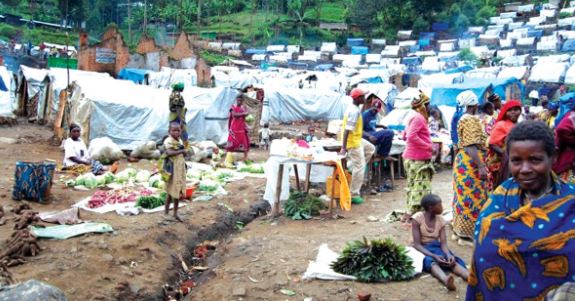By Prof. Terhemba Shija
It is baffling how Africans, particularly Nigerians crave to live on charity. Everybody is caught up in this syndrome irrespective of his or her social class, gender or tribe.
Begging for a living has something to do with dependency. It’s a mindset acquired from our history of slavery and colonialism. Those who beg are not truly independent. Even the rich in our country are not truly independent. They are enslaved by greed and avarice. They live their lives almost entirely on government patronage. Their bills are paid by government one way or the other while the poor spend their lives imagining that government projects executed with public funds by politicians were the gracious benevolence of charitable individuals in power.
Those who live on charity possess low self esteem. The masses don’t seem to think that they owe the vast rich resources of their country. They beg to be recognised. They haggle one another over local issues but are hardly ever aware that their country earns enough to take care of their social services in education, health care, shelter, environmental wellbeing and general infrastructure.
With this dependency mindset, most Nigerians beg other people for what is legitimately theirs. Sychophancy, thuggery and eye-service thrive among the ruling class as a by-product of charity living. Politicians therefore think that the provision infrastructure or good governance to citizens is purely an act of charity or pity..
It is intriguing that the Nigerian federal and state governments also beg. The huge monthly windfall of petrol dollars that is distributed to all the 3 tiers of government appears insufficient for their needs and demands. Our leaders still take foreign loans or persistently beg for grants and charities abroad.
A beggar must be seeing to be truly poor to obtain mercy from his benefactors. Nobody gives money to someone who looks cute. So our governments need to always portray us as vulnerable, lowly and diminished so as to attract sympathy. Our country needs to look perpetually underdeveloped to be eligible for charity from foreign governments and multilateral agencies.
In Benue there appears to be some pride in announcing to the world that over one million of our citizens are living in IDP camps. And for many years, help has been coming from the national and international communites by cash, supply of rice and local mattresses or mats and so on.
Isn’t It a contradiction that the food basket of the nation now lives on cups of rice from outside to feed over one million members of its community? But I think the leadership of our state is oblivious of what these refugees really need or how to disband those camps. No Benue person wants to be stigmatised as living on charity. No Benue man craves the lifestyle of an Almajari. The Tiv particularly say “Mye he ya wou mtse ga”
Over two months after the destruction of Yelewata and the massacre of over 200 innocent citizens, why are the survivors still lumped at a market square 35 kilometers away from home? Could it be that government is yet to provide enough protection for them to return home, or somebody wants them to tarry a little longer in a crowded dungeon to paint a perfect picture of the wretched of the earth and possibly beg for more charity from foreign donors?
It is a shame that the government has not released any plans for the rehabilitation of the Yelewata village in spite of the billions of Naira received so far towards that purpose. Nobody seems to be giving a thought to the plight of hundreds of the Yelewata children who had to prematurely leave school, or the local markets abandoned or the lush farmlands forsaken in the wake of the invasion.
After a tragedy of this magnitude, a government should do everything to uplift the spirit of the victims so as to assure them of a more secured and prosperous future. So far no promises have been given to anyone about the possibility of revamping normal life at Yelewata.
What is even more, it is not certain how much money the state government has collected from different individuals, governments and organisations towards the rebuilding of Yelewata. Government itself has not announced any supplemently budget to rehabilitate Yelewata. But at least we can recall that the First Lady, Senator Remi Tinubu alone publicly donated a whooping sum of One billion Naira for this cause. It is possible to reasonably begin to reconstruct Yelewata with each of the less than 100 families affected getting as much as N10 million to commence work on their homes.
There is no reason why we should continuously parade the Yelewatans at a market square at the state capital as symbols of charity craving. Take them back home, restore their dignity, release to them the money donated for their rehabilitation and allow them to build their homes with the military supervising.
Prof. Terhemba Shija, a literary and oubkic commentator writes from Abuja, Nigeria.















